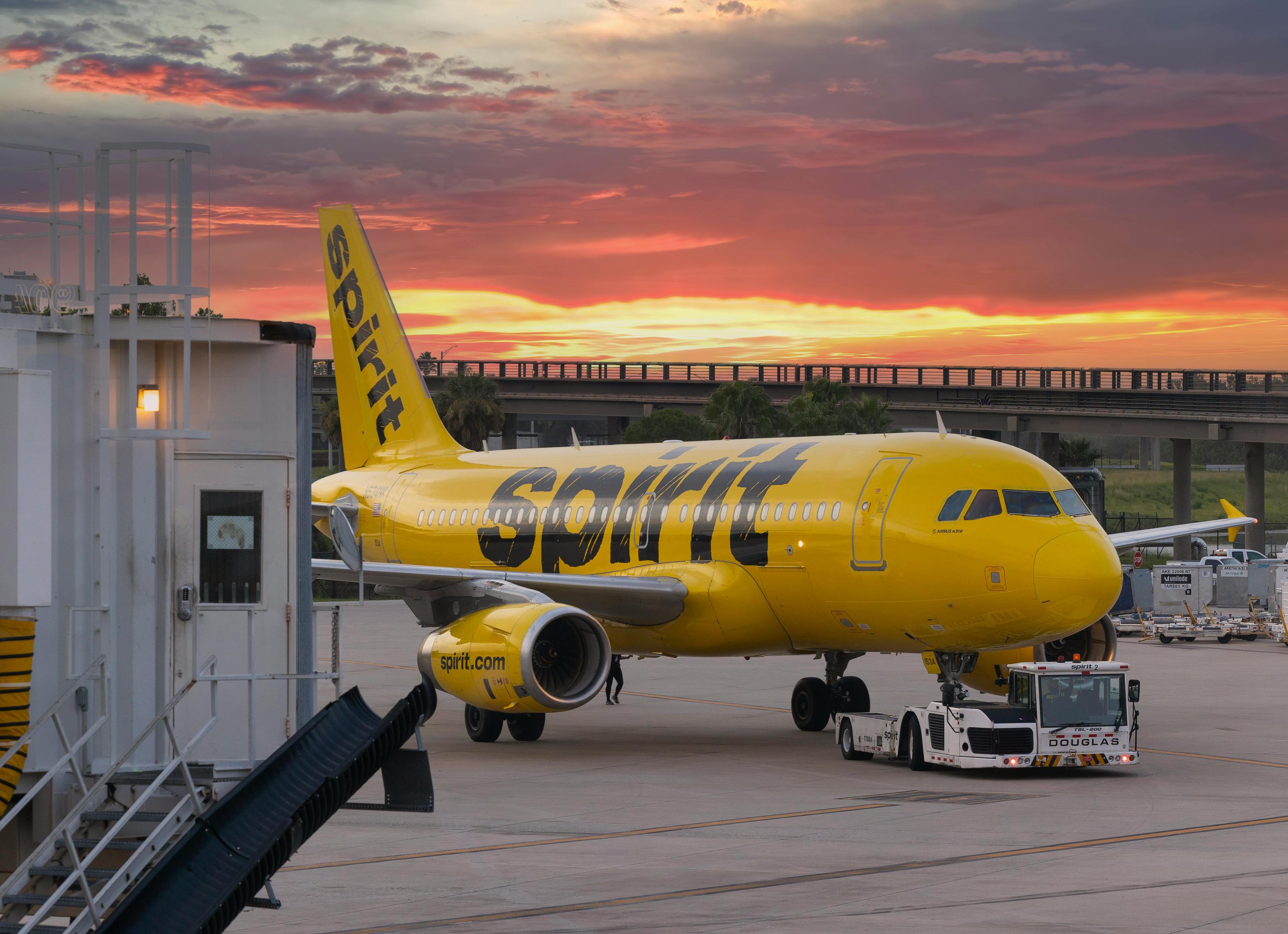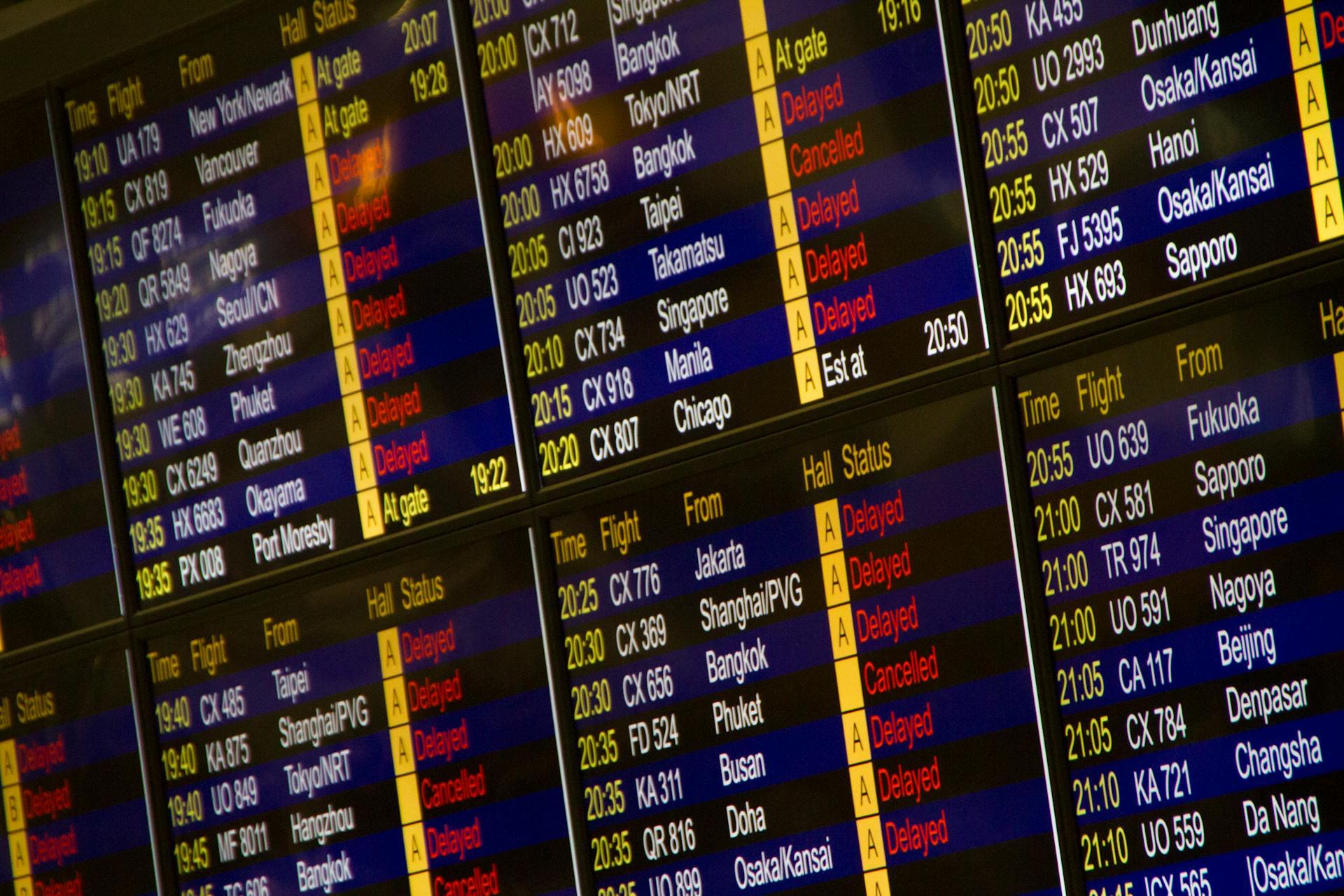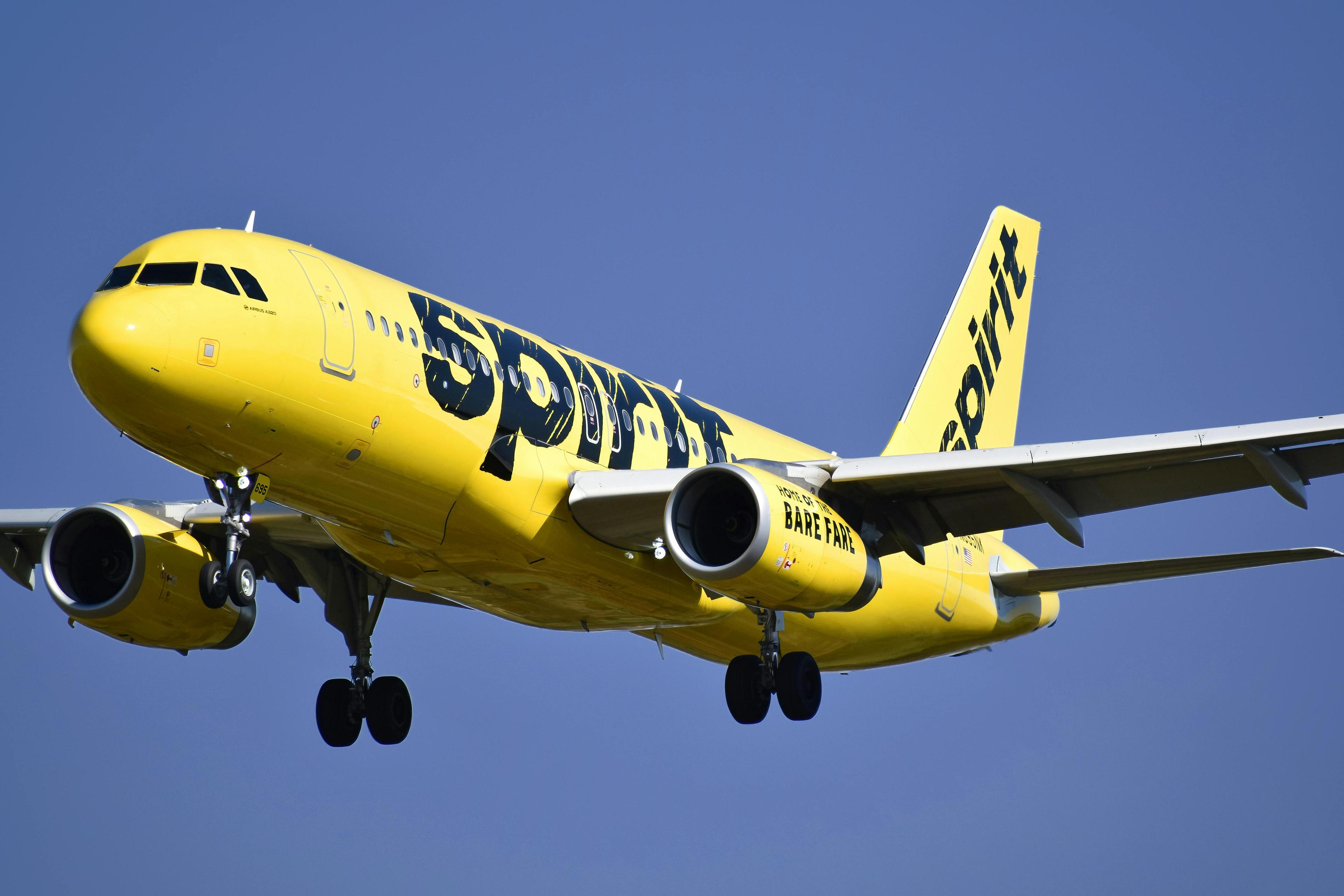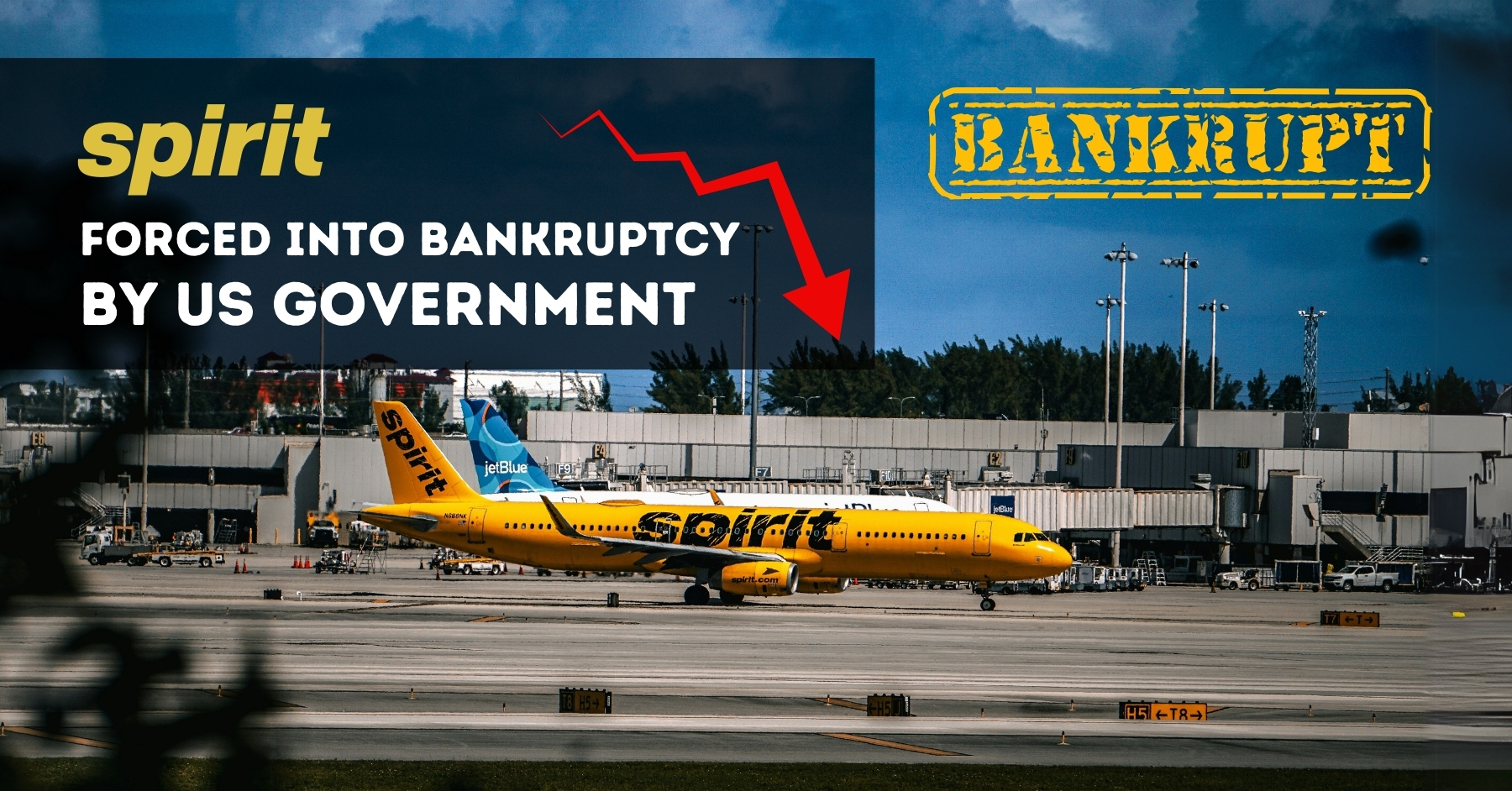Spirit Airlines Grounded by Regulatory Interference
On November 18, 2024, Spirit Airlines filed for Chapter 11 bankruptcy protection, a move that everyone saw comming due to the financial struggles that the company has had for years. Spirit's financial struggles were exacerbated by a series of government interventions, its attempts to merge with both Frontier Airlines and JetBlue Airways were blocked by U.S. regulators, citing concerns about reduced competition.
But here's the irony: by stopping Spirit from merging, the government may have sealed its financial fate, leaving the airline to restructure under bankruptcy and potentially reducing competition even more than a merger would have.

A History of Blocked Mergers
Spirit Airlines wasn't just another airline — it was a key player in providing affordable travel options to millions of Americans. In 2022, Spirit announced plans to merge with Frontier Airlines. The idea was simple: create a stronger low-cost competitor to take on the big players like Delta and American Airlines. Regulators, however, said "no" claiming the merger would limit consumer choice.
Spirit then turned to JetBlue Airways in hopes of a partnership that could stabilize its operations; but once again, regulators intervened, citing similar antitrust concerns. These two failed attempts left Spirit stranded, unable to scale operations or compete effectively in an increasingly consolidated market.
The Unintended Consequences of Regulation
Government regulations are often implemented with good intentions—to protect consumers and ensure healthy competition. But in this case, the unintended consequences have been devastating. Blocking Spirit's mergers left the airline with no viable path forward, leading directly to its Chapter 11 filing.
The very act of preventing these mergers has now resulted in a potential decrease in competition. If Spirit can't recover through restructuring, one less airline means fewer options and potentially higher prices for travelers. Isn't that exactly what regulators were trying to avoid?
How Consumers Are Paying the Price
For years, Spirit Airlines was known for its ultra-low fares, giving millions of travelers affordable options. But now, as the airline grapples with bankruptcy, its future is uncertain. If Spirit reduces its operations—or worse, ceases to exist—what happens to consumers?
Fewer airlines mean fewer choices, and fewer choices mean higher ticket prices. This isn't just speculation; it's the likely outcome of eliminating a major player in the low-cost carrier space. By blocking Spirit's chance to merge and strengthen its position, regulators may have inadvertently hurt the very consumers they were trying to protect.

Lessons from Spirit Airlines
Spirit's bankruptcy isn't just a story about one airline — it's a warning about the broader impact of overregulation. When government agencies step in without fully considering real-world consequences, businesses, employees, and consumers often bear the brunt.
This situation highlights the importance of balancing regulatory oversight with business flexibility. While antitrust concerns are valid, blocking every potential solution for struggling companies can create a ripple effect that harms the economy.
Moving Forward: A Smarter Approach to Regulation
So, where do we go from here? Regulators must rethink their approach to balancing competition and survival. Spirit Airlines needed a lifeline, and mergers with Frontier or JetBlue could have provided just that. Instead, the government's decisions left Spirit with no alternative but bankruptcy.
Moving forward, policymakers need to collaborate with businesses to create solutions that protect competition without forcing companies into financial ruin. This means considering the long-term effects of their decisions—not just the immediate headlines.
What This Means for the Skies
Spirit Airlines' Chapter 11 filing is a stark reminder of how government intervention, even with good intentions, can backfire. The airline's struggles weren't just financial — they were the result of being blocked at every turn from creating a sustainable future through partnerships.
As Spirit restructures, it's unclear what the future holds for low-cost air travel. What is clear, however, is the need for regulators to adopt a smarter, more nuanced approach. Protecting competition is important, but so is allowing businesses the flexibility to adapt and survive.
For now, let's hope Spirit can recover and continue providing affordable travel options. Because when competition truly disappears, it's the consumer who ends up paying the price.


